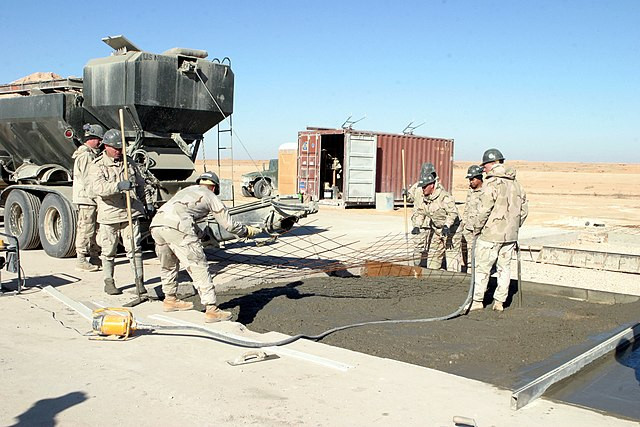The Al-Asad Airbase in Iraq was targeted in a ballistic missile attack, resulting in injuries to U.S. personnel. This event marks a significant uptick in the threats faced by U.S. and coalition forces in the region, particularly from Iranian-backed Shia militias.
The attack, which involved multiple ballistic missiles and rockets, led to minor injuries among U.S. personnel, with some being evaluated for traumatic brain injuries. This information was confirmed by the U.S. Central Command in a statement on Saturday evening. The base's air defenses intercepted most of the projectiles, but some made impact, highlighting the growing sophistication and audacity of the attacks.
The Islamic Resistance in Iraq, an umbrella group of Iran-backed Iraqi militants, claimed responsibility for the assault. In a statement, the group emphasized its opposition to American "occupation forces" and linked the attack to what it referred to as the "Zionist entity's massacres" against the Palestinian people in Gaza. This claim aligns with the increasing number of attacks on U.S. and coalition forces, which have been attributed to Iran-backed entities, particularly in the wake of the ongoing Israel-Hamas war.
These incidents represent a challenge to the stability and security of the region. With more than 143 attacks in Iraq and Syria since October 7, the U.S. and coalition forces are operating in an increasingly hostile environment. The Iraqi Prime Minister Mohammed Shia al-Sudani recently expressed concerns over these attacks, suggesting a reorganization of the relationship with international forces to prevent further tensions.
In response to these security challenges, U.S. forces have carried out airstrikes against facilities used by Iranian-backed groups like Kataib Hezbollah, known for many of the rocket and drone attacks against the coalition. These responses, while aimed at deterring aggression, have added to the complexity of U.S. relations with the Iraqi government and the broader regional dynamics.
The situation in Iraq is further complicated by external threats, such as the Iranian-backed Houthi rebels' attacks in the Red Sea and the Gulf of Aden. These attacks have targeted international shipping lanes, including strikes on U.S.-owned vessels, leading to heightened security concerns in these critical waterways.
The Pentagon maintains that the presence of U.S. forces in Iraq is still at the invitation of the Iraqi government, and discussions about sustaining a strong bilateral partnership continue. National security adviser Jake Sullivan's recent meeting with al-Sudani in Davos, Switzerland, underscores the ongoing efforts to address these challenges collaboratively.
As the region faces these multifaceted security issues, the U.S. remains committed to its mission of advising and assisting local forces in the fight against the Islamic State and ensuring regional stability. However, the increasing frequency and severity of these attacks highlight the precariousness of this mission and the need for a nuanced and strategic approach to security in the Middle East.




